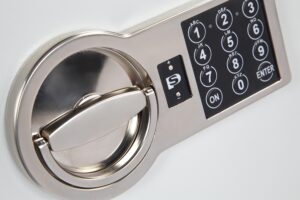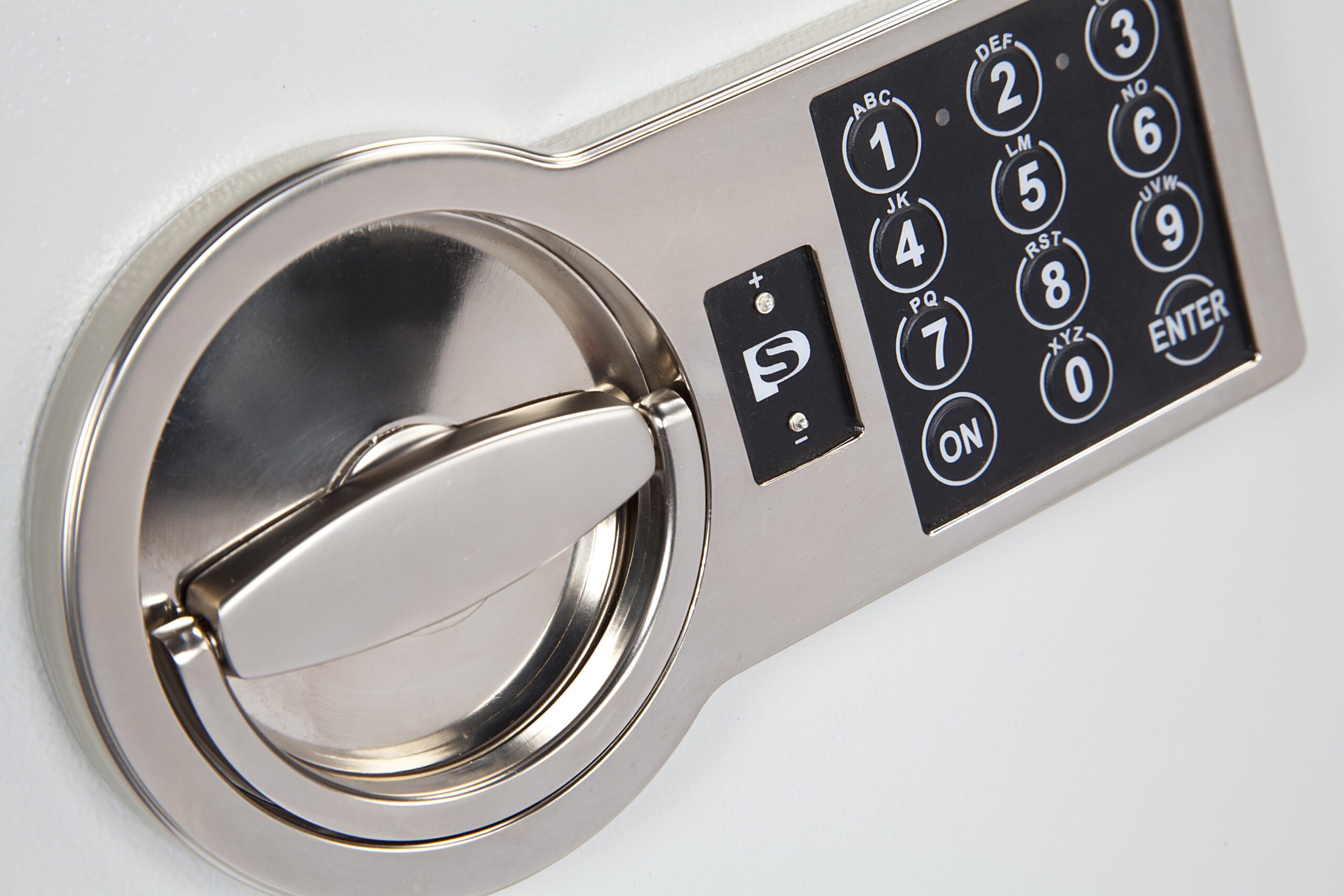Have you ever wondered which lock provides the most secure protection for your belongings? With various options available in the market, it can be challenging to determine which one offers the highest level of safety. Understanding the key features, strengths, weaknesses, and security ratings of different locks is crucial in making an informed decision to safeguard your valuables. Stay tuned to discover essential tips that will help you choose the safest lock for your needs. Read Electronic Lock in Hyderabad, Gurgaon & Delhi
Types of Locks
- When choosing a lock for your security needs, it’s essential to consider the specific types available and their unique features to make an informed decision. Lock technology has advanced significantly in recent years, offering a variety of options to enhance the security of your property. One popular type is the smart lock, which utilizes technology like Bluetooth or Wi-Fi to allow for keyless entry and remote access control. Smart locks often come with features such as activity logs and integration with home automation systems, providing convenience and peace of mind.
- On the other hand, traditional mechanical locks still play a crucial role in security. These locks, based on centuries-old technology, are known for their reliability and durability. Proper lock maintenance is key to ensuring their effectiveness. Regularly lubricating the lock mechanism and checking for any signs of wear and tear can help prevent malfunctions and potential security breaches. By understanding the different types of locks available and investing in proper maintenance, you can better protect your property and valuables.

Key Features Comparison
- Comparing the key features of different types of locks allows you to make an informed decision based on their specific functionalities and security benefits. When considering mechanical vs electronic locks, durability and convenience are key aspects to evaluate.
- Mechanical locks are known for their durability, as they’re less prone to malfunctions caused by electronic failures or power outages. These locks rely on traditional keys or combinations, offering a reliable security solution.
- On the other hand, electronic locks provide added convenience through features like keyless entry, remote access control, and activity tracking. While electronic locks may offer enhanced convenience, they’re also susceptible to technological vulnerabilities such as hacking or system malfunctions.
- When deciding between durability vs convenience, it’s essential to weigh the security risks associated with electronic locks against the reliability of mechanical locks. Ultimately, the choice between mechanical and electronic locks depends on your specific security needs and preferences.
Strengths and Weaknesses
- For a comprehensive analysis of the security features of locks, it’s crucial to delve into their strengths and weaknesses. When considering the strengths, one of the key pros of high-security locks is their advanced technology, including features like biometric access control or anti-picking mechanisms.
- These innovative elements enhance the overall security of the lock and reduce the risk of unauthorized entry. Additionally, high-security locks often come with reinforced materials such as hardened steel or alloys, increasing their resistance to physical attacks.
- On the flip side, the cons of high-security locks typically revolve around cost and complexity. These locks tend to be more expensive due to their advanced features and materials, making them less accessible for individuals on a budget. Moreover, the intricate mechanisms that provide enhanced security can also lead to potential maintenance issues or difficulties in case of a lockout situation.
- When evaluating durability factors, high-security locks usually outperform standard locks in terms of longevity and resistance to wear and tear, but they may require specialized care and occasional professional upkeep to maintain their optimal performance.
Security Ratings Breakdown
- Delving into security ratings breakdown reveals crucial insights into the effectiveness of different lock systems. When analyzing security ratings, factors such as lock picking techniques and security vulnerabilities play a significant role. High-security locks are designed to withstand various lock picking methods, including bumping, picking, and drilling. Understanding these techniques helps in evaluating the resilience of a lock against unauthorized entry attempts.
- Moreover, the impact of technology on security ratings can’t be overlooked. Advanced lock systems incorporate cutting-edge features like biometric authentication, smart connectivity, and tamper detection mechanisms to enhance security. These technological advancements contribute to higher security ratings by mitigating traditional vulnerabilities.
- Looking towards the future, continuous advancements in lock technology are expected to further elevate security standards. Innovations such as artificial intelligence integration, blockchain encryption, and remote monitoring capabilities hold promise for enhancing the robustness of lock systems. By staying informed about security ratings breakdown and embracing future advancements, individuals can make informed decisions when selecting locks to safeguard their properties.
Tips for Choosing the Safest Lock
- To ensure optimal security for your property, prioritize selecting the safest lock by considering key factors such as resistance to common lock picking techniques and integration of advanced security features. When choosing a lock, one of the most critical aspects to evaluate is its durability. Opt for locks constructed from robust materials like hardened steel or brass, as they offer increased resistance to physical attacks. Look for locks that have undergone durability testing to ensure they can withstand prolonged use without deteriorating.
- Additionally, price considerations play a significant role in selecting a secure lock. While it may be tempting to opt for budget-friendly options, investing in a higher-quality lock can provide better long-term security and peace of mind. Consider the value of the property you’re protecting and weigh it against the cost of the lock. Remember, the price of a lock often reflects its quality and level of security, so it’s worth investing in a reliable and durable option to safeguard your belongings effectively.
Conclusion
In conclusion, when it comes to choosing the safest lock, it’s important to consider the specific needs of your property and the level of security required. Both traditional locks and smart locks have their own strengths and weaknesses, so it’s crucial to carefully weigh the key features and security ratings before making a decision. By following these tips and conducting thorough research, you can ensure that your property is properly secured with the most effective lock for your needs.

Leave a Reply